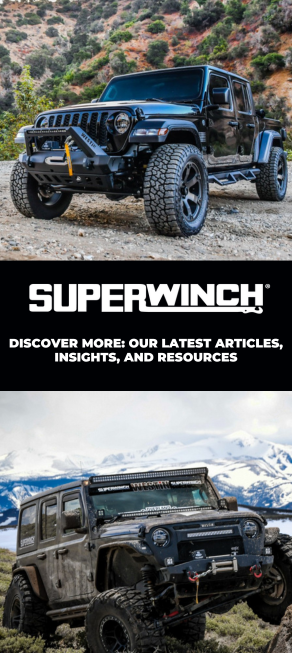The off-roading industry is a big one. In 2022, the off-road vehicle market was valued at $10 billion, with most projections doubling that figure by the end of the decade. The off-roading parts and accessories market is growing exponentially, too, and winches are one of the most popular items on sale today.
But what really keeps the winch industry buzzing is the heated debate revolving around the choice between synthetic rope and steel cables. Both types have unique advantages and disadvantages, and the choice often boils down to specific needs, preferences, and the conditions under which they will be used.
This blog post will explore the pros and cons of each type, hopefully making it easier to choose between the two.
Steel Cable
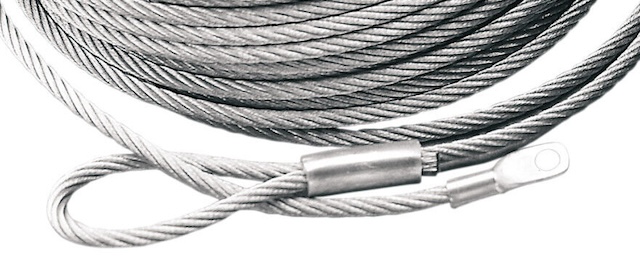
Steel cables have been around for decades. They are durable and well suited to abrasive pulling conditions as they are resistant to cuts and abrasions. They aren’t as well suited to wet or damp conditions as they will rust over time if not cleaned thoroughly. They also weigh up to four times as much as synthetic cables, which can impact the vehicle’s handling and makes managing steel rope more cumbersome.
Roller fairleads are recommended with steel cabling to manage cable wear and strain better. A winch damper is an essential accessory here, as steel cable has a lot of kinetic energy, which can make it whip around dangerously if it snaps. Steel cabling remains a popular choice with many off-roaders, partly due to its affordability and low maintenance requirements.
Advantages:
- Durability: Steel cables are highly resistant to abrasion, heat, and harsh environmental conditions.
- Maintenance: They require less maintenance and are more forgiving with rough handling.
- Pricing: Steel cabling is often more cost-effective than synthetic equivalents.
Disadvantages:
- Weight: Heavier, which can be a drawback for vehicle handling and fuel efficiency.
- Safety Hazard: If a steel cable snaps, it can recoil dangerously.
- Rust: Can rust over time, which weakens the cable.
Synthetic Rope
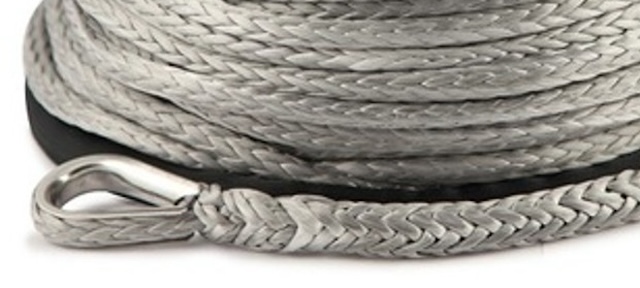
Synthetic rope was first introduced to the off-roading scene in the mid-‘90s. It was lightweight yet just as strong as steel cable, while being more flexible. This made it a popular alternative to steel cabling, although it is pricier and less suitable for use over harsh surfaces. A smooth, polished aluminum fairlead is recommended as it reduces abrasion on the rope.
Advantages:
- Weight: Synthetic ropes are significantly lighter than steel cables, making them easier to handle and reducing the overall weight of the vehicle.
- Safety: If a synthetic rope breaks, it doesn’t recoil with the same force as a steel cable, reducing the risk of injury or damage.
- Floats on Water: This can be a huge advantage in waterlogged situations.
- Flexibility: Easier to spool on the winch drum and handle during recovery operations.
Disadvantages:
- Durability: Synthetic ropes are more susceptible to wear and tear from UV rays, chemicals, and abrasion.
- Maintenance: They require more regular cleaning and inspection to ensure their integrity.
- Pricing: They tend to cost more than steel cable
Accessory Recommendations
- Winch Dampers
- Remote Controllers
- Gloves
- Fairleads – Roller or Hawse
Winch dampers are always a good idea, but especially so if you are using steel cable, as it is more likely to recoil or whip around if it loses tension or snaps.
Every winch comes with a remote control unit. Wireless ones allow you to move to a safe spot before winching and are recommended for synthetic and steel cabling. If your preferred winch is only available with a wired controller, make sure that the wiring is long enough to let you keep well away from the cabling when the winch is in operation.
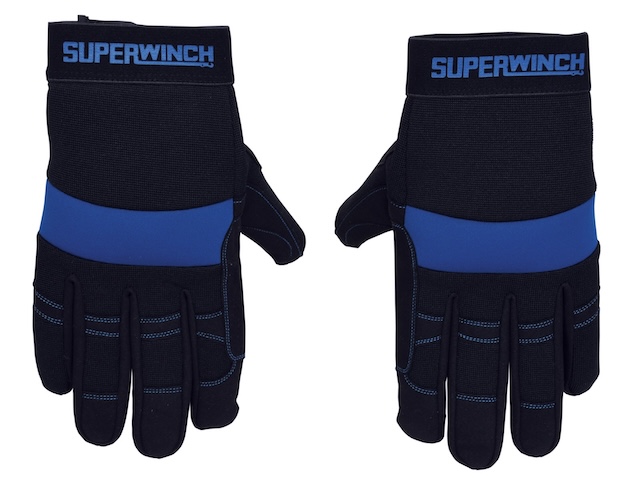
Gloves should be used every time you winch. They are especially useful if you are using steel cabling as they can protect your hands from any frayed steel wiring and provide a better grip.
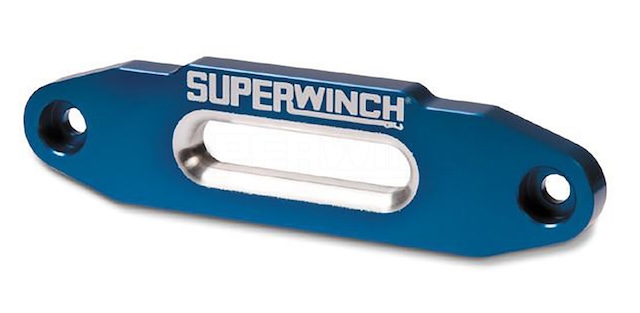
Fairleads are the guides on the front of the winch through which the cable is fed. A Hawse fairlead is a simple rectangular aluminum design that is best paired with synthetic rope. The smooth finish will prevent abrasions and help the rope wind on and off the drum more easily.
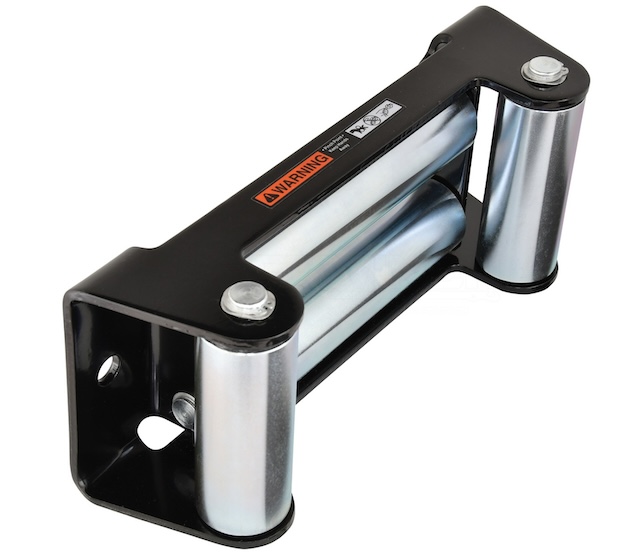
Roller fairleads are generally made from steel (preferably with a galvanized finish) and have a set of four rollers along which the cabling slides. They are the best choice for steel cabling.
Superwinch Has the Perfect Solution For Your Winching Needs
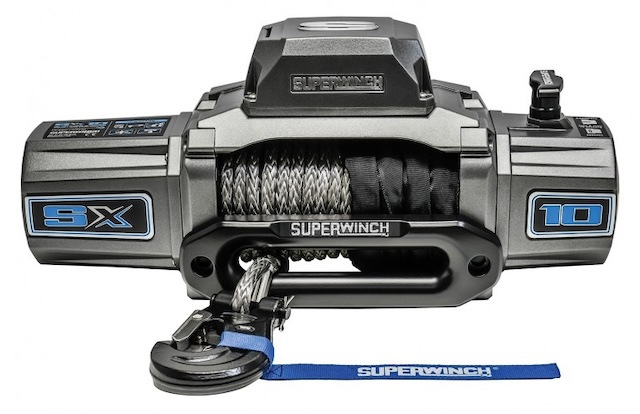
Superwinch has been providing reliable and high-performance winching products for over 50 years. It is a subsidiary of Westin® Automotive, which is a manufacturer of quality aftermarket automotive products for Trucks, Jeeps, and SUVs.
The choice between synthetic rope and steel cable in winching operations is not a straightforward one. It depends on a variety of factors, including the type of terrain, frequency of use, and personal preference. Using the right accessories is also essential for longevity and safety.
Whether you pick steel or synthetic cable, Superwinch products feature first-class design, quality construction, maximum value, and simple, safe operation. We back our products up with a comprehensive warranty, too. Get in touch with our expert team if you need assistance with our wide range of winches and winching accessories.

